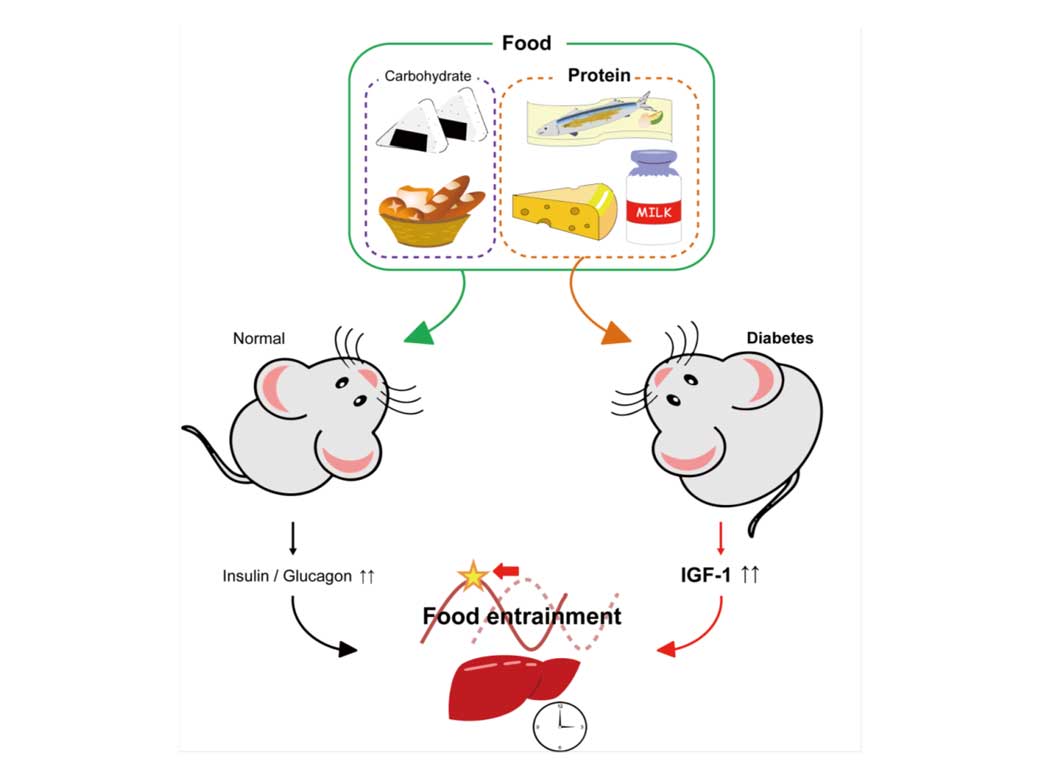Protein and amino acid-only diet synchronizes liver circadian clock
Wed, Feb 28, 2018-
Tags
Scientists find a new possibility for obesity prevention and diabetes treatment
A research team led by Shigenobu Shibata, professor of neurochemistry at Waseda University, discovered that glucagon, a peptide hormone, and/or insulin-like grown factors (IGF-1) production regulates resetting of the liver circadian clock in response to a protein or amino-acid only diet when insulin signaling is disrupted for reasons such as diabetes. Their research was published in EBioMedicine on January 21, 2018.

The circadian clock consists of the suprachiasmatic nucleus (SCN) in the hypothalamus, which acts as the master pacemaker, and peripheral clocks in peripheral organs. The circadian clock synchronizes to the external 24-hour environment by the SCN receiving information on the light-dark cycle and by the peripheral clocks, including the liver clock, receiving information from the SCN through multiple pathways such as food intake, which induces strong entrainment due to insulin secretion and intracellular signaling. However, the liver clock of type-1 diabetes model mice was observed to be entrained by scheduled feeding, suggesting that insulin is not necessary for entrainment in the liver clock by feeding.
In this study, the team analyzed whether feeding mice a protein-only diet or amino-acids that do not cause insulin secretion cold cause entrainment of the liver clock to identify possible additional factors. Their findings demonstrated that in place of insulin, increasing glucagon and IGF-1 levels by feeding a protein-only diet entrains the liver circadian clock, and that cysteine, an inexpensive amino acid, has the strongest phase advance via increases in IGF-1 in the liver.
Although further study will be necessary for practical application, their findings have potential in creating a new diet menu for patients with non-communicable diseases such as obesity and diabetes, as well as chronotherapeutic agents for patients with circadian rhythm disorders, shift work, and those suffering from jet lag.













